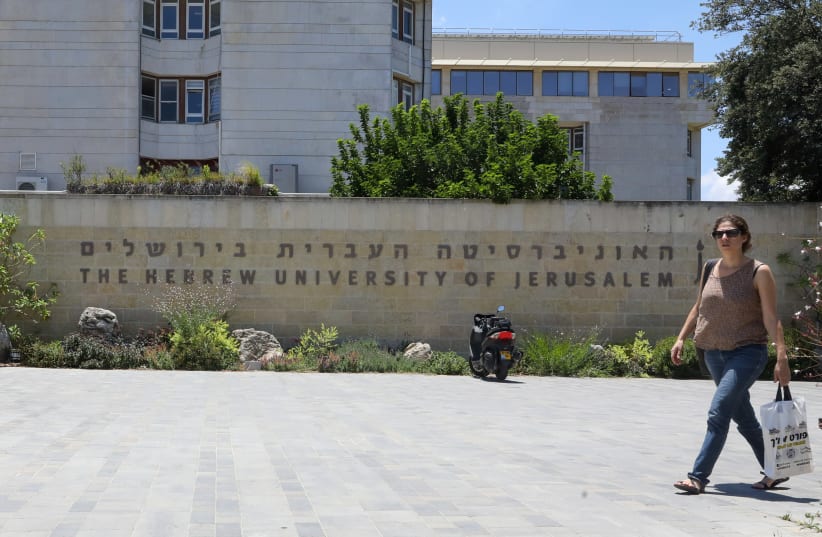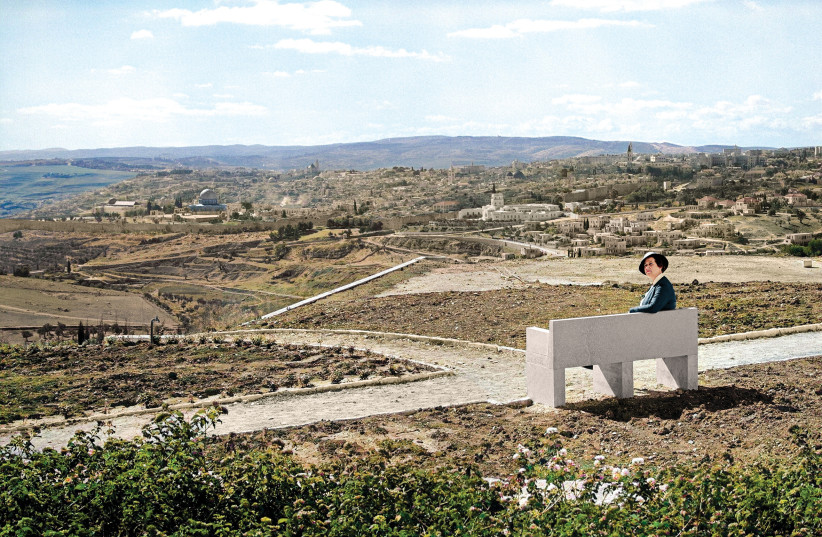The Hebrew University of Jerusalem climbed 13 places to rank 77th among the world’s top universities, and the highest-ranked university in Israel, according to the 2022 Academic Ranking of World Universities (ARWU) published on Monday morning.
At the top of the list was Harvard University, followed by Stanford University, the Massachusetts Institute of Technology, the University of Cambridge in the UK and the University of California at Los Angeles.
Two other Israeli universities placed in the top 100 as well; the Technion-Israel Institute of Technology in Haifa and the Weizmann Institute of Science in Rehovot were listed as sharing the 83rd spot.
The Technion's comments on its high university ranking
The Technion, in 83rd place, improved by 11 places compared to last year’s ranking, where it was listed in 94th place. Since 2012, it has consistently appeared on the Shanghai Ranking Top 100 list (except for 2020), and this year’s ranking is the highest that the Technion received in the last four years.
Moreover, the Technion is ranked among the Top 50 institutions in the world in three categories: Aerospace Engineering (Technion is #22), Telecommunication Engineering (#40) and Automation & Control (#49). The index also places the Technion in the #51-75 range for Chemistry and for Transportation Science & Technology.
“The Technion’s presence on the list of the world’s top 100 universities and its improved ranking for two years in a row are a significant and important achievement,” said Technion President Prof. Uri Sivan. “It signifies international recognition of the Technion’s academic and research excellence, and I am very proud of our outstanding faculty. The Technion will continue to invest resources and effort in order to continue to improve in upcoming years. Our strength and success lie in our excellent human capital, which spearheads the numerous achievements and breakthroughs in research and teaching. These successes are the result of hard work and diligence by the academic and administrative faculty, faculty deans and the Technion’s management. The global academic competition is rapidly intensifying, and while many governments around the world are constantly increasing their investments in academia and research, academic development in Israel largely relies on donations, and these are becoming increasingly difficult to obtain. “
Sivan continued that “for Israel to continue to improve its standing at the forefront of global research and to ensure the future of its universities, economy and security, the government must significantly increase its financial investment in research and teaching and adopt a friendlier approach towards admitting foreign students and faculty members. It’s important to remember that without government support and globalization of research institutes, it will be hard for us to remain on the list.”
The Weizmann Institute did not comment on its 83rd rating.
“The Hebrew University’s success in this year’s rankings is a testament to our ongoing academic and research excellence."
Hebrew University president Prof. Asher Cohen
Hebrew University said number 77 was “a major achievement for Israel’s higher education at large and specifically for the Hebrew University.”
This past July, ARWU released its Global Ranking of Academic Subjects, in which Hebrew University topped the list among Israeli institutions for higher education in mathematics, Earth sciences, atmospheric sciences, nanoscience and nanotechnology, environmental sciences, water resources, food sciences, agriculture, dentistry, medical technology, economics, law, political science, communications and public policy.
Globally, Hebrew University strengthened its academic standing, placing 17th in mathematics and communications (up seven and eight places, respectively, relative to 2021), 30th in law, and 48th in public policy.
“Hebrew University is a symbol, an exemplar of uncompromising excellence in research and equal access to higher education."
Hebrew University rector Prof. Barak Medina
Hebrew University response
Upon hearing the news, Hebrew University president Prof. Asher Cohen enthused, “The Hebrew University’s success in this year’s rankings is a testament to our ongoing academic and research excellence. To date, we’ve made notable achievements in a variety of disciplines, have developed lifesaving medicines and established influential companies in cutting-edge industries, placing Israel at the forefront of science worldwide.”
Hebrew University rector Prof. Barak Medina added, “Hebrew University is a symbol, an exemplar of uncompromising excellence in research and equal access to higher education. Our researchers are involved in theoretical and applied sciences and stand at the forefront of science that will change our lives for the better. Thanks to our wonderful student body, faculty, staff and academic partnerships with leading universities worldwide, our university has been forged as a local and global leader and a key driving force behind Israel’s thriving economy and society.”
Shanghai Ranking’s ARWU, published annually, is considered one of the most reliable ratings in academia. It assesses the quality of research at academic institutions and is based on various indicators. Those include the number of faculty members and alumni who have won Nobel Prizes and Fields Medals, the number of articles published by researchers in leading scientific journals, and the extent to which researchers’ articles are cited by their peers.
The full rankings are available at www.shanghairanking.com.

